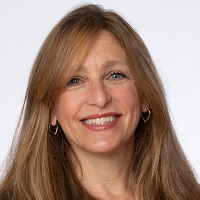Considering Donating to Charity? Here’s a Road Map to Steer Your Choices
Getting started can be challenging, but never fear, we provide key questions to ask to help make your philanthropy more rewarding.


Profit and prosper with the best of Kiplinger's advice on investing, taxes, retirement, personal finance and much more. Delivered daily. Enter your email in the box and click Sign Me Up.
You are now subscribed
Your newsletter sign-up was successful
Want to add more newsletters?

Delivered daily
Kiplinger Today
Profit and prosper with the best of Kiplinger's advice on investing, taxes, retirement, personal finance and much more delivered daily. Smart money moves start here.

Sent five days a week
Kiplinger A Step Ahead
Get practical help to make better financial decisions in your everyday life, from spending to savings on top deals.

Delivered daily
Kiplinger Closing Bell
Get today's biggest financial and investing headlines delivered to your inbox every day the U.S. stock market is open.

Sent twice a week
Kiplinger Adviser Intel
Financial pros across the country share best practices and fresh tactics to preserve and grow your wealth.

Delivered weekly
Kiplinger Tax Tips
Trim your federal and state tax bills with practical tax-planning and tax-cutting strategies.

Sent twice a week
Kiplinger Retirement Tips
Your twice-a-week guide to planning and enjoying a financially secure and richly rewarding retirement

Sent bimonthly.
Kiplinger Adviser Angle
Insights for advisers, wealth managers and other financial professionals.

Sent twice a week
Kiplinger Investing Weekly
Your twice-a-week roundup of promising stocks, funds, companies and industries you should consider, ones you should avoid, and why.

Sent weekly for six weeks
Kiplinger Invest for Retirement
Your step-by-step six-part series on how to invest for retirement, from devising a successful strategy to exactly which investments to choose.
Giving money away is not hard. The challenge comes in giving it to the right people, in the right amounts, at the right time and for the right reasons. Aristotle first made that observation more than 2,000 years ago, and it’s just as true today.
But by asking the right questions, you can develop a plan that will help make giving meaningful, effective and joyful.
To begin, start by asking:
From just $107.88 $24.99 for Kiplinger Personal Finance
Become a smarter, better informed investor. Subscribe from just $107.88 $24.99, plus get up to 4 Special Issues

Sign up for Kiplinger’s Free Newsletters
Profit and prosper with the best of expert advice on investing, taxes, retirement, personal finance and more - straight to your e-mail.
Profit and prosper with the best of expert advice - straight to your e-mail.
1. Why are you giving?
Reflect on what values are driving you. Perhaps it’s generational family beliefs, cultural heritage or faith. Or maybe you’re carving a path away from past traditions. It could be a desire to address specific obstacles you overcame — perhaps being the first in your family to graduate from college or surviving a serious illness. While there may be multiple answers, making time to understand your motivations is the first step to building a foundation for effective philanthropy.
2. What issues do you care about?
Once you understand your motivation, the next step is to zero in on specific issues. Countless causes could benefit from your generosity. You may feel compelled to help address the homelessness crisis, offer youth mentoring or increase arts access. If you have a family member who struggles with an illness, you may be passionate about supporting research on promising therapies.
It helps to think through the significant challenges that spark your interest and narrow the focus to something more manageable. Consider what populations you most want to support, where and what you want to accomplish.
You can pick one issue or many, and they can reinforce each other or not.
3. What’s your approach to making change happen?
Once you’ve determined the issue area(s) you want to address, the next step is to consider the how — in other words, the approach you want to take. Positive impact can happen in many ways. Consider what feels like the best fit for your goals, issue focus, expertise and time horizon.
Let’s say that after answering questions one and two, you’ve zeroed in on the impacts of climate change and pollution on ocean life. You could select any number of different approaches: to fund research to better understand the problems, to help drive awareness campaigns about the impact of pollutants, to donate to policy advocacy initiatives to regulate actions that harm the oceans, to help spur community action to support environmentally friendly practices or to support innovative technologies that mitigate threats or habitat restoration.
For large, complex and long-standing challenges, it makes sense to take a long view and right-size your approach, the resources you are willing to give and how long you plan to give.
4. How can you work most effectively?
If you are eager to devote significant time to philanthropy for the long term yourself or will hire staff to assist you, and you’re focused on crafting a public legacy, you may choose to set up a private foundation. You’ll need tax and legal assistance, as well as philanthropic advising. Other givers opt for the simplicity of a donor-advised fund (DAF), which can be offered by a community foundation, a national fund associated with a financial institution or a mission-oriented nonprofit.
You could work alone, but you’d likely be more effective if you collaborated with others. With whom and how you collaborate depends on a wide range of considerations, but when done well, it can greatly enhance progress. For example, a group of philanthropists joined together to create the Plastic Solutions Fund to increase the impact they could have on the environment. Individuals can create giving circles to learn and give together, or work with a professional philanthropic adviser.
Collaboration can also be with community groups most knowledgeable about their local context or their community’s needs.
5. How will you assess progress?
Most givers wonder, “How do I know I’m making a difference?” Unlike a for-profit investment's straightforward monetary gain or loss, a charitable donation’s impact is more nuanced and challenging to assess. In this regard, measuring your philanthropy's impact can be difficult.
Moreover, making change — especially significant, systemic change — takes time, so as you think about measures, having milestones along the way can help. As you consider the milestones to measure, understand that there may be art as well as science involved: quantifiable outputs — such as the number of students graduating from college — and less tangible outcomes — such as more vibrant communities.
Sometimes the work is part of a complex system. You may want to rigorously measure results or, at the other end of the spectrum, collect stories about the people touched by your donations. You can assess your own or work with philanthropic professionals to help you learn what’s working.
Whichever approach you take, it’s important to work with the nonprofit organizations that receive your funds to understand how they measure impact so you’re assessing what matters most and avoiding adding unnecessary bureaucracy. Consider how the communities most impacted by your giving would define success.
Your Personalized Philanthropic Journey
Every giver is different. Some people are hands-on and want to jump right in themselves. Others prefer to use professional, philanthropic advisers to research issues and organizations, offer insights and handle the mechanics of giving. Some give publicly, and others prefer privacy. For some givers, philanthropy is a joyful family affair; for others, it might feel like a family feud.
Reflect on which feels right to you. You may even choose to be a changemaker yourself and start an organization. If you do, it might be prudent to consider working with a fiscal sponsor, which can provide the infrastructure that can be cumbersome to create on your own.
Whatever path you choose, it helps to have a framework to map your philanthropic journey and set you in the right direction.
Rest assured, you don’t have to be a billionaire to be a philanthropist. Every giver can earn that title. And by answering the key questions that chart your road map for giving, you can find deeper meaning in your generosity, assess progress along the way and ensure your investment in the cause you care about is paying off.
Profit and prosper with the best of Kiplinger's advice on investing, taxes, retirement, personal finance and much more. Delivered daily. Enter your email in the box and click Sign Me Up.

Catherine Crystal Foster is vice president of the Rockefeller Philanthropy Advisors (RPA) Advisory team. In her role, she provides strategic guidance across program areas for families, foundations, and corporations to accelerate social impact. Prior to joining RPA, she served as CEO and co-founder of Magnify Community, where she worked with Silicon Valley philanthropists to make bold and catalytic investments in the community. Catherine has led and advised philanthropic and nonprofit organizations for more than 20 years.
-
 Nasdaq Leads a Rocky Risk-On Rally: Stock Market Today
Nasdaq Leads a Rocky Risk-On Rally: Stock Market TodayAnother worrying bout of late-session weakness couldn't take down the main equity indexes on Wednesday.
-
 Quiz: Do You Know How to Avoid the "Medigap Trap?"
Quiz: Do You Know How to Avoid the "Medigap Trap?"Quiz Test your basic knowledge of the "Medigap Trap" in our quick quiz.
-
 5 Top Tax-Efficient Mutual Funds for Smarter Investing
5 Top Tax-Efficient Mutual Funds for Smarter InvestingMutual funds are many things, but "tax-friendly" usually isn't one of them. These are the exceptions.
-
 Social Security Break-Even Math Is Helpful, But Don't Let It Dictate When You'll File
Social Security Break-Even Math Is Helpful, But Don't Let It Dictate When You'll FileYour Social Security break-even age tells you how long you'd need to live for delaying to pay off, but shouldn't be the sole basis for deciding when to claim.
-
 I'm an Opportunity Zone Pro: This Is How to Deliver Roth-Like Tax-Free Growth (Without Contribution Limits)
I'm an Opportunity Zone Pro: This Is How to Deliver Roth-Like Tax-Free Growth (Without Contribution Limits)Investors who combine Roth IRAs, the gold standard of tax-free savings, with qualified opportunity funds could enjoy decades of tax-free growth.
-
 One of the Most Powerful Wealth-Building Moves a Woman Can Make: A Midcareer Pivot
One of the Most Powerful Wealth-Building Moves a Woman Can Make: A Midcareer PivotIf it feels like you can't sustain what you're doing for the next 20 years, it's time for an honest look at what's draining you and what energizes you.
-
 I'm a Wealth Adviser Obsessed With Mahjong: Here Are 8 Ways It Can Teach Us How to Manage Our Money
I'm a Wealth Adviser Obsessed With Mahjong: Here Are 8 Ways It Can Teach Us How to Manage Our MoneyThis increasingly popular Chinese game can teach us not only how to help manage our money but also how important it is to connect with other people.
-
 Looking for a Financial Book That Won't Put Your Young Adult to Sleep? This One Makes 'Cents'
Looking for a Financial Book That Won't Put Your Young Adult to Sleep? This One Makes 'Cents'"Wealth Your Way" by Cosmo DeStefano offers a highly accessible guide for young adults and their parents on building wealth through simple, consistent habits.
-
 Global Uncertainty Has Investors Running Scared: This Is How Advisers Can Reassure Them
Global Uncertainty Has Investors Running Scared: This Is How Advisers Can Reassure ThemHow can advisers reassure clients nervous about their plans in an increasingly complex and rapidly changing world? This conversational framework provides the key.
-
 I'm a Real Estate Investing Pro: This Is How to Use 1031 Exchanges to Scale Up Your Real Estate Empire
I'm a Real Estate Investing Pro: This Is How to Use 1031 Exchanges to Scale Up Your Real Estate EmpireSmall rental properties can be excellent investments, but you can use 1031 exchanges to transition to commercial real estate for bigger wealth-building.
-
 Should You Jump on the Roth Conversion Bandwagon? A Financial Adviser Weighs In
Should You Jump on the Roth Conversion Bandwagon? A Financial Adviser Weighs InRoth conversions are all the rage, but what works well for one household can cause financial strain for another. This is what you should consider before moving ahead.